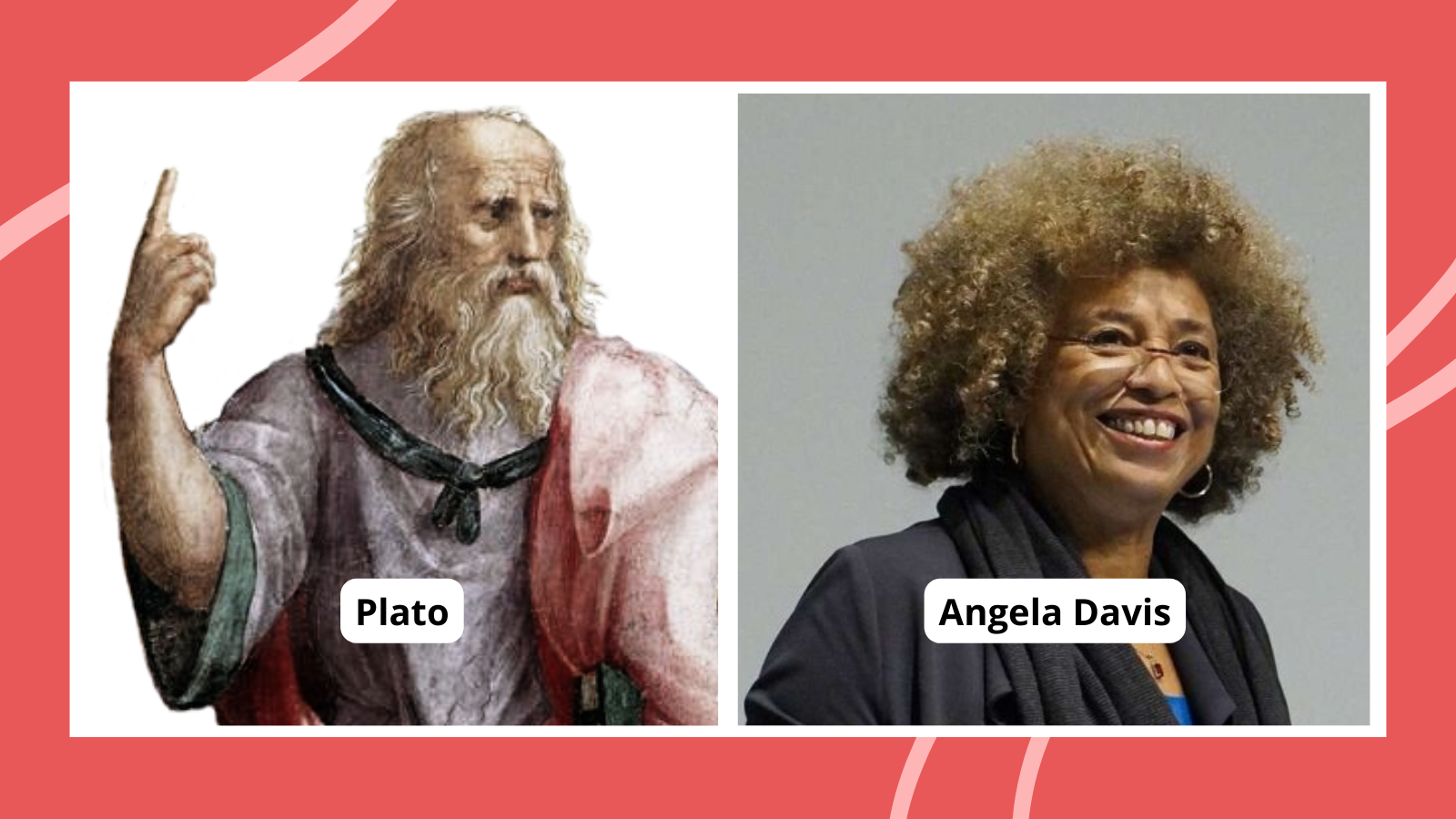Names like Socrates and Plato are certainly quick to mind when thinking of famous philosophers. But philosophy is not just an outdated practice from centuries ago. Studying philosophy helps students build important skills like problem-solving, analyzing concepts, developing arguments, and organizing ideas, to name just a few. The history of various political and religious ideologies can also usually be found in the study of philosophy. Check out this list of famous philosophers everyone should know.
1. Socrates (c. 470 BCE to 399 BCE)
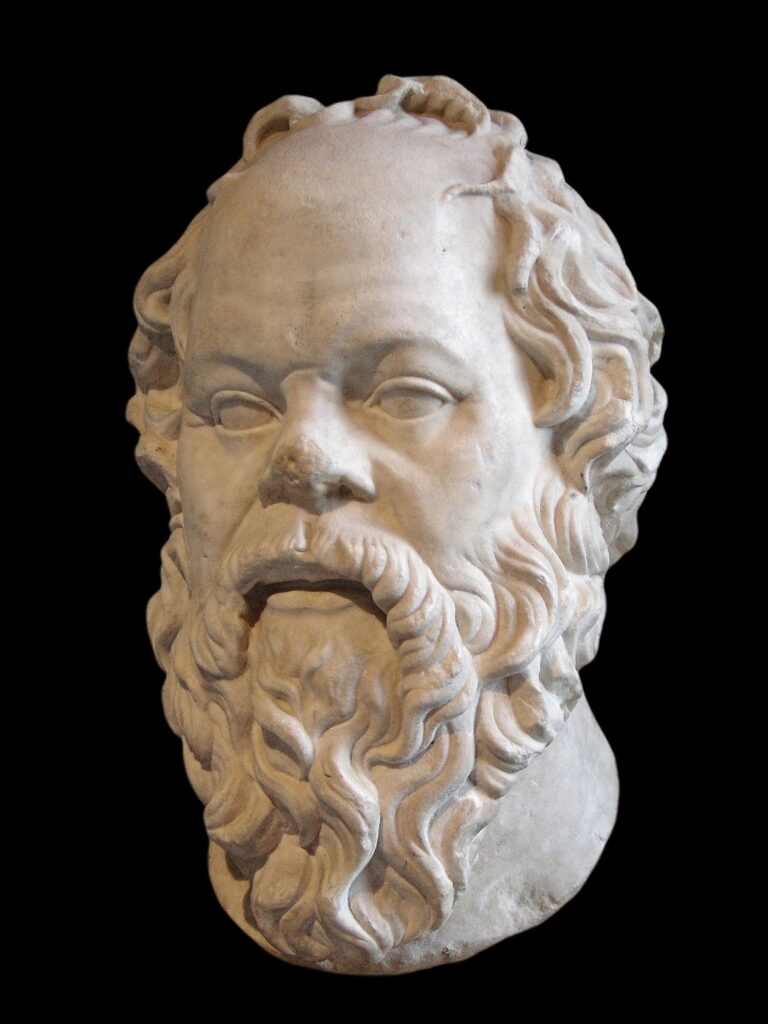
Socrates, who is credited with being the founder of Western philosophy, belongs on every list of famous philosophers. While there are no existing texts from Socrates, he is known largely through the writings of his students Plato and Xenophon. He is particularly well known for the Socratic Method of question and answer and his focus on morality.
Learn more: Socrates at Britannica
2. Friedrich Nietzsche (1844–1900)
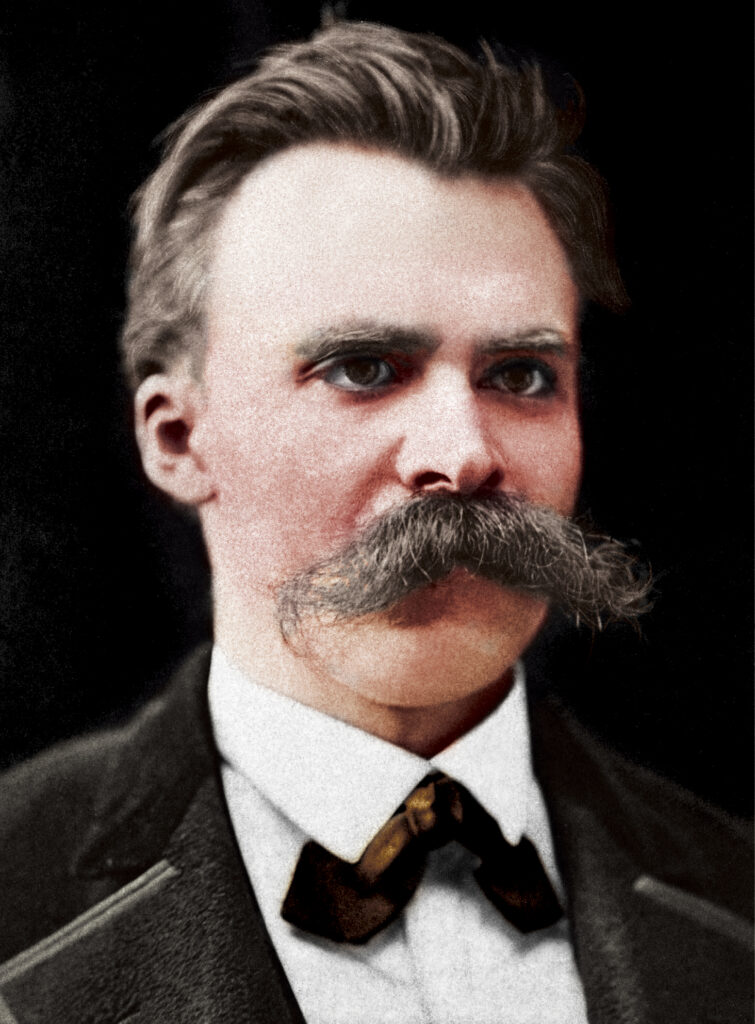
German philosopher Friedrich Nietzsche is known for his unwavering criticisms of traditional European morality and religion. Much of his criticism had its foundations in psychological diagnoses and therefore he is often associated with Karl Marx and Sigmund Freud.
Learn more: Friedrich Nietzsche at Stanford Encyclopedia of Philosophy
3. Hannah Arendt (1906–1975)
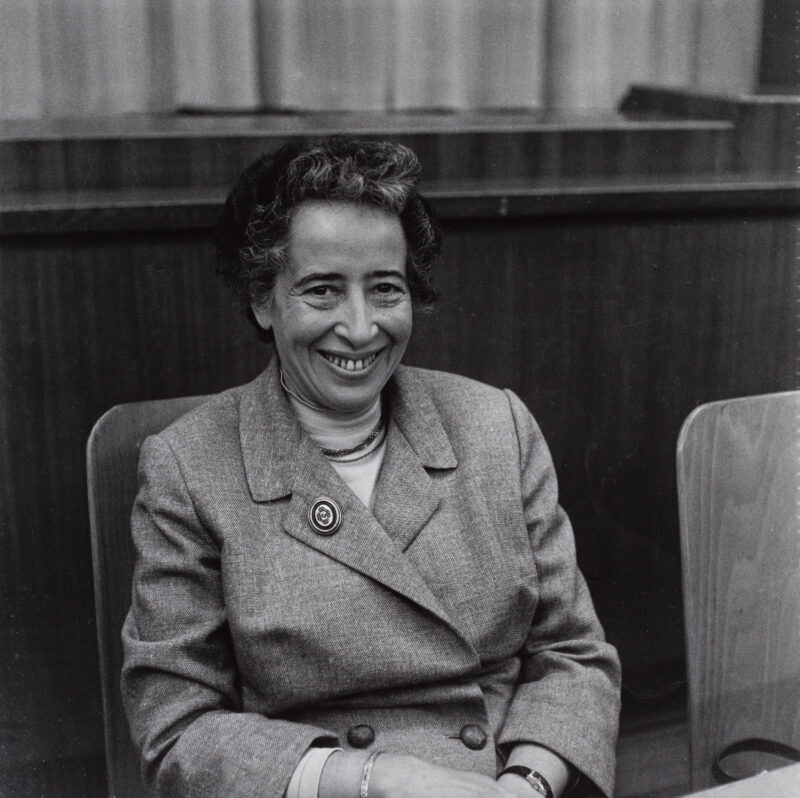
German American Jew Hannah Arendt was a philosopher and political theorist best known for her thoughts regarding the nature of power and evil. She covered topics including politics, totalitarianism, revolution, and freedom. Arendt coined the term “the banality of evil” in her 1961 book Eichmann in Jerusalem.
Learn more: Hannah Arendt at Britannica
4. Immanuel Kant (1724–1804)
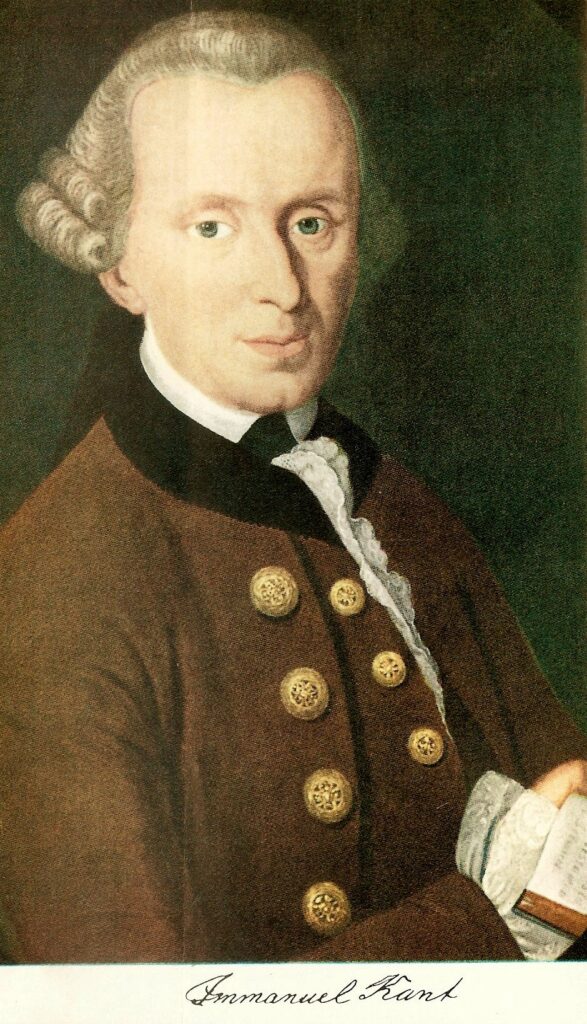
Few thinkers were more influential in modern Western philosophy than German Immanuel Kant. His doctrine of “transcendental idealism” put forth that human beings experience only appearances, not things (objects in space and time) in themselves. He also wrote extensively on epistemology, metaphysics, ethics, and aesthetics.
Learn more: Immanuel Kant at Stanford Encyclopedia of Philosophy
5. Simone de Beauvoir (1908–1986)
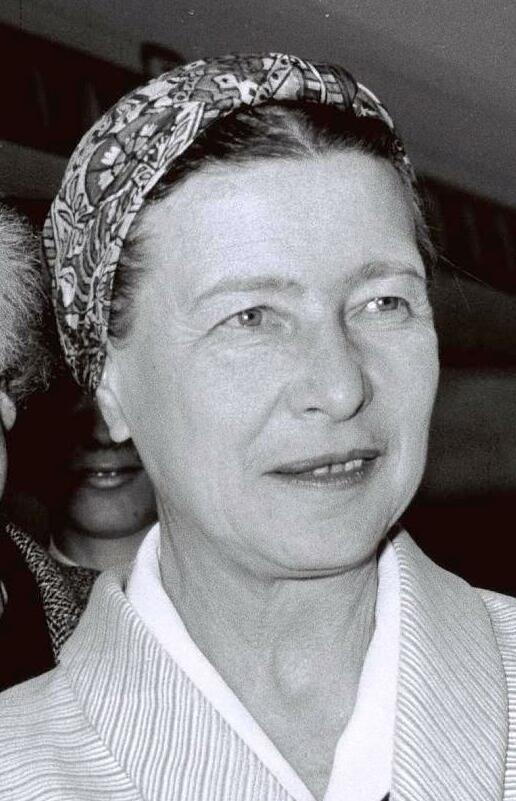
Simone de Beauvoir was a French writer and feminist activist. While she didn’t consider herself a philosopher, she had a significant impact on feminist existentialism and feminist theory. She emphasized the need for women to be treated equally to men and for societal institutions to be changed accordingly. She authored 1943’s She Came to Stay and 1954’s The Mandarins.
Learn more: Simone de Beauvoir at Britannica
6. Hypatia of Alexandria (c. 355 CE to 415 AD)
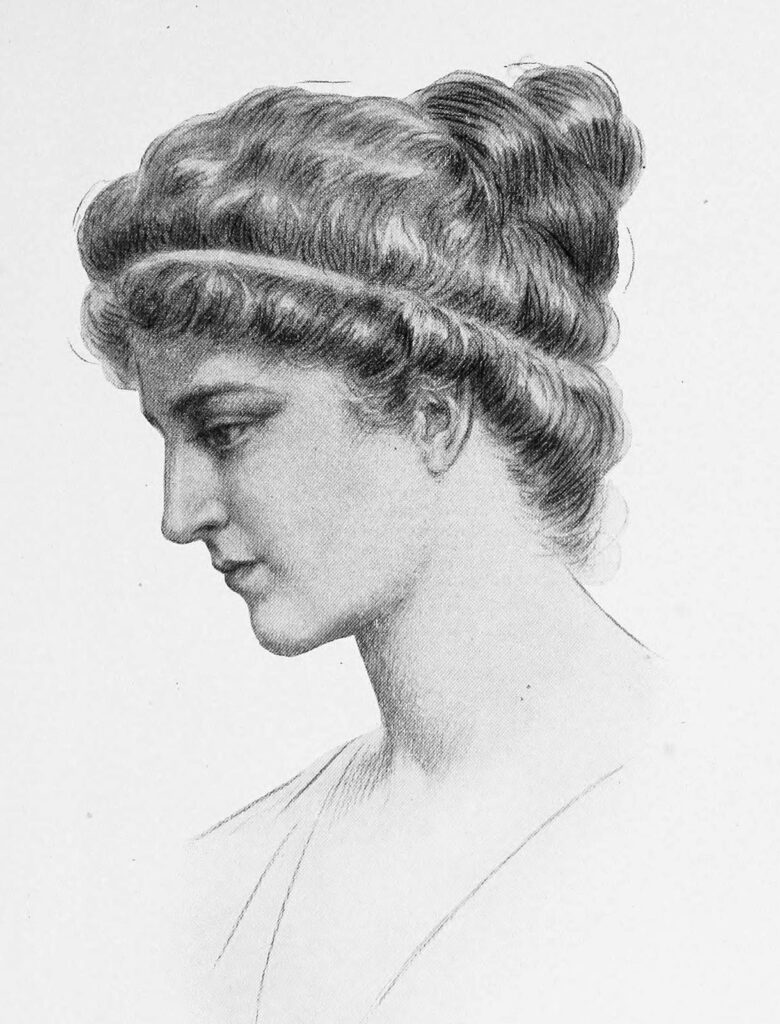
It would be hard to make a list of famous philosophers and not include Hypatia of Alexandria. She was the leader of the Neoplatonist school of philosophy and was also a renowned mathematician and astronomer. Hypatia faced sexism as well as criticism for her pagan beliefs, however, she will be forever remembered for her teachings, which influenced modern theories of astronomy and mathematics.
Learn more: Hypatia of Alexandria at Britannica
7. Judith Butler (b. 1956)
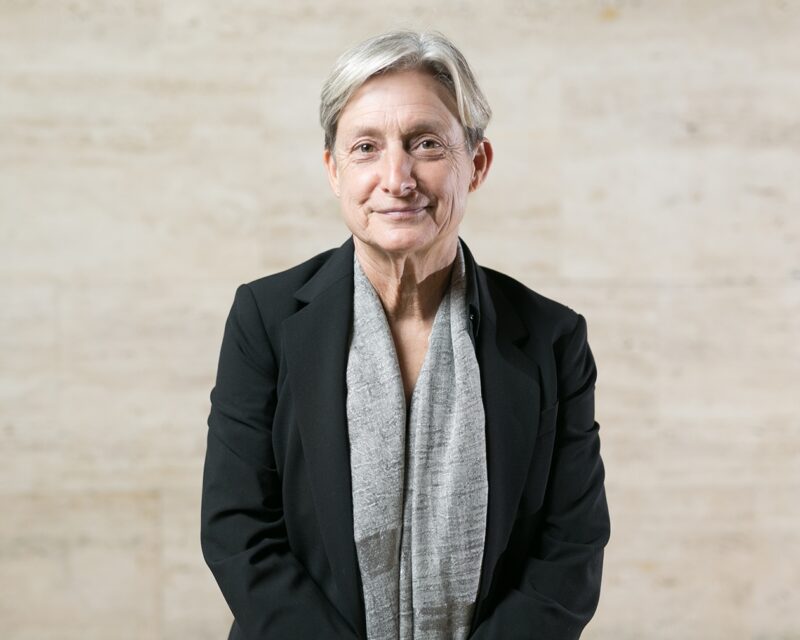
American Judith Butler is one of the only living famous philosophers on our list. Butler has written several books that rebuke traditional notions of gender while also establishing a theory of the performative nature of gender and sex. Their writings have proven influential within Francocentric philosophy as well as cultural and queer theory. Butler, who believes that gender is purely a social construct, prefers to go by the pronouns they/them.
Learn more: Judith Butler at Britannica
8. bell hooks (1952–2021)
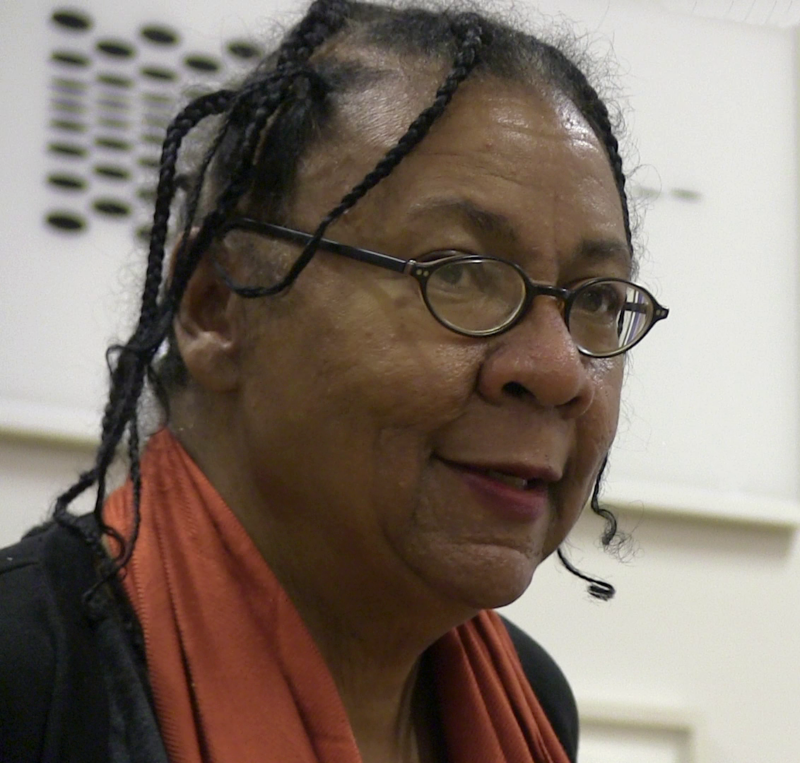
Gloria Jean Watkins was an American author, educator, social critic, and theorist who chose to go by the pseudonym bell hooks after her great-grandmother. She used only lowercase letters to spell her name both to honor her great-grandmother as well as to put the focus on the books rather than herself. Hooks was an intersectional feminist whose feminist theory was based on the idea that social classifications such as race, gender, sexual identity, etc., are interconnected. She therefore believed that ignoring those intersections created oppression toward women.
Learn more: bell hooks at NPR
9. Plato (428/427 BCE to 348/347)
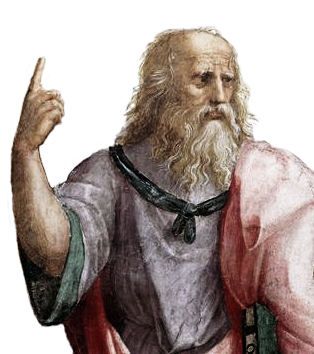
When people think of famous philosophers, they likely think of the ancient Greek philosopher Plato. He founded the Academy and was an innovator of the written dialogue and dialectic forms in philosophy. He was also a student of Socrates, another famous philosopher on our list.
Learn more: Plato at Britannica
10. Voltaire (1694–1778)

Voltaire was a prolific French writer who wrote numerous books, plays, poems, and polemics during his lifetime. Often thought of as the philosopher of progress, Voltaire used satire to speak out against tyranny, bigotry, and cruelty.
Learn more: Voltaire at Britannica
11. Karl Marx (1818–1883)
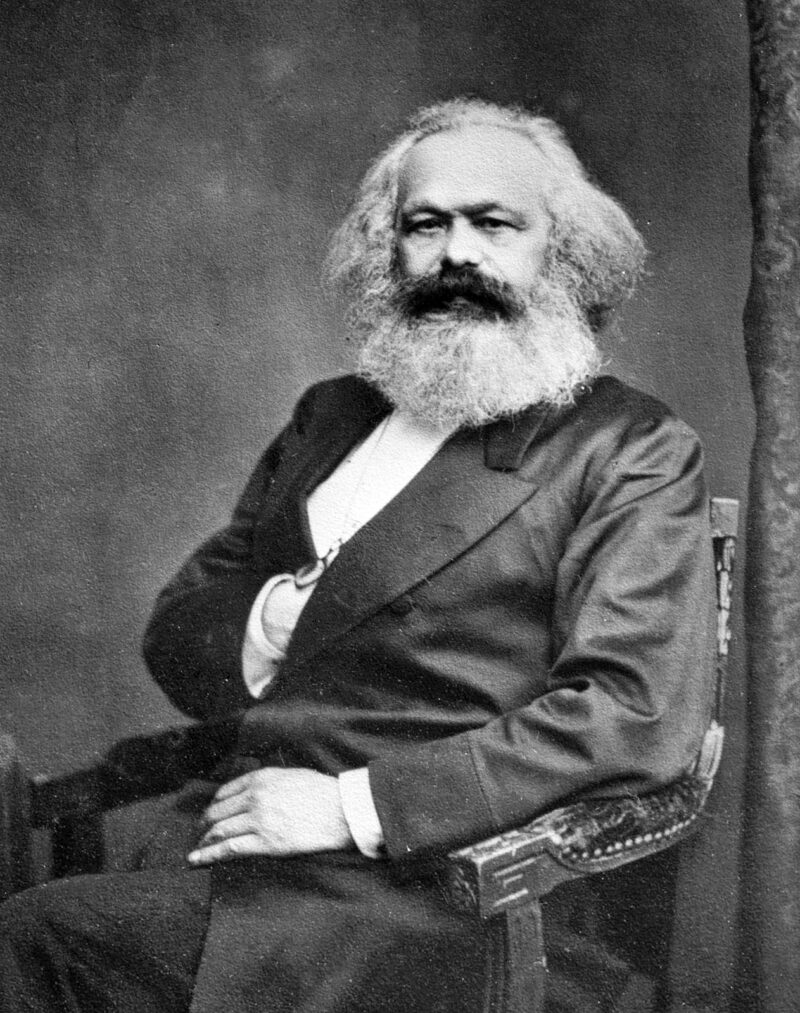
Karl Marx was a German philosopher whose writings would form the basis for Marxism. Marxism argues that class struggle will define economic relations in a capitalist economy and will therefore lead to a communist revolt. His theory favors communism and socialism over capitalism.
Learn more: Karl Marx at Stanford Encyclopedia of Philosophy
12. Jean-Jacques Rousseau (1712–1778)
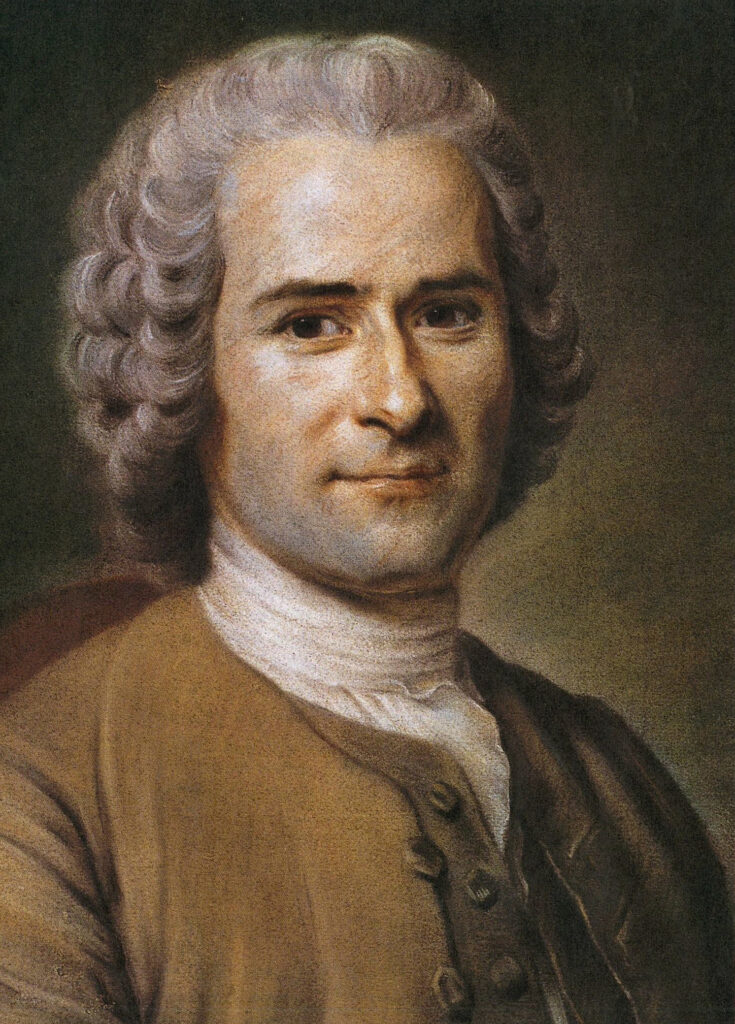
Genevan Jean-Jacques Rousseau was a philosopher, writer, and composer. His thought “marked the end of the European Enlightenment.” He is probably best known for his work The Social Contract, which argued against monarchs being ordained by God to legislate. Instead, he argued in favor of the right to legislate belonging only to the general will of the people.
Learn more: Jean-Jacques Rousseau at Britannica
13. David Hume (1711–1776)
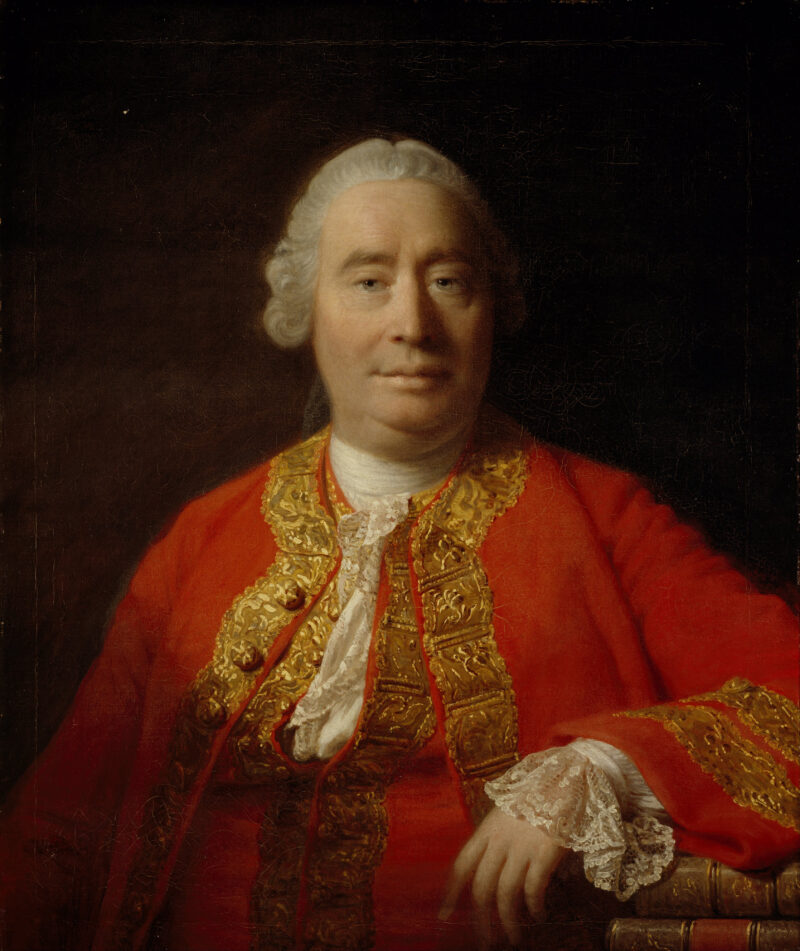
David Hume was a Scottish economist, essayist, historian, and philosopher who promoted philosophical empiricism and skepticism and whose work was often denounced as atheism. One of his lasting legacies is the notion that human beings must be motivated by passion rather than reason. Notably, Charles Darwin’s theory of evolution was influenced by Hume’s work.
Learn more: David Hume at Stanford Encyclopedia of Philosophy
14. Niccolò Machiavelli (1469–1527)
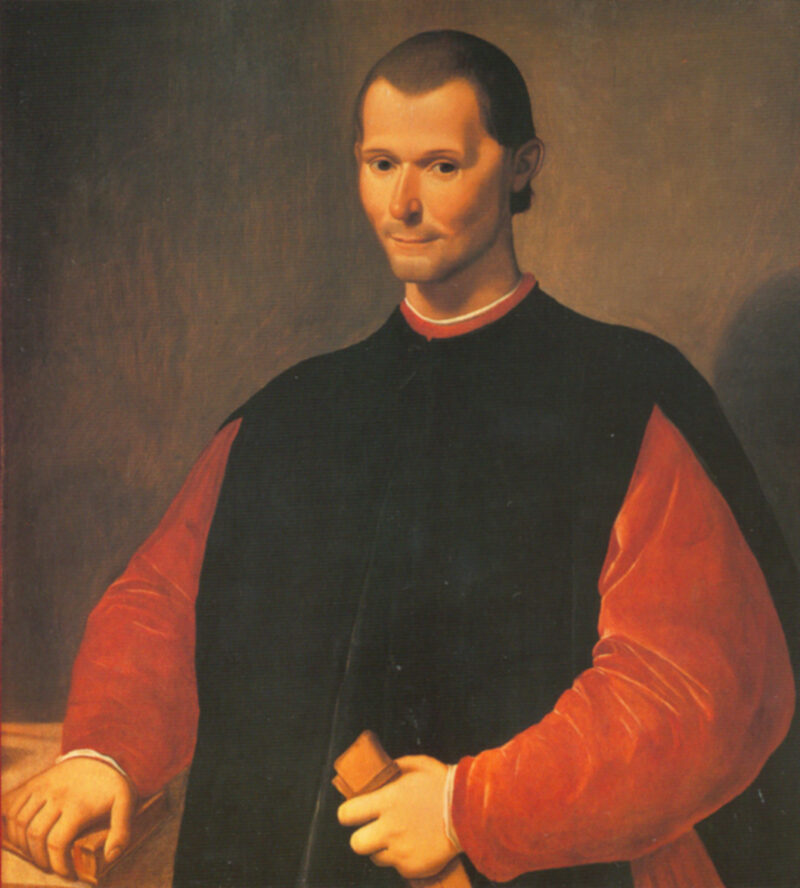
Niccolo Machiavelli was a Florentine philosopher whose name has actually been transformed into the adjective Machiavellian, meaning to be generally cunning or scheming. While well known, many consider his theories questionable, including that the end always justifies the means and it is better to be feared than loved.
Learn more: Niccolò Machiavelli at Britannica
15. John Dewey (1859–1952)
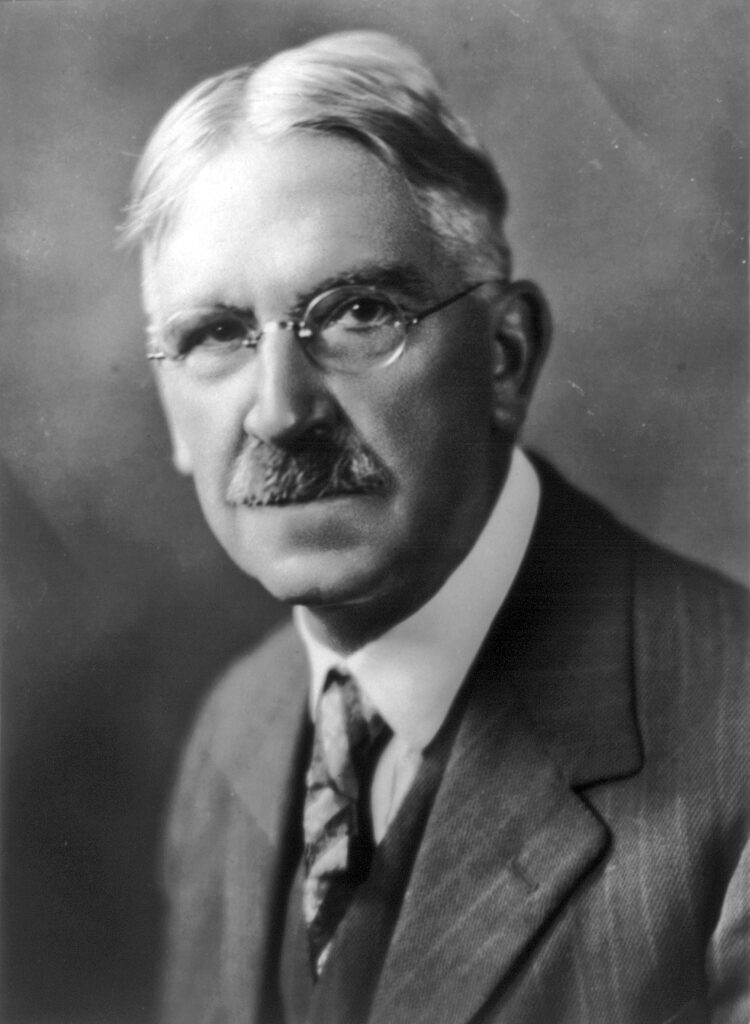
American philosopher and educator John Dewey was one of the founding members of the pragmatist philosophical movement, or “cultural naturalism” as he preferred to call it. He was also a pioneer in functional psychology. His overarching belief was in democracy, whether it took its form in education, politics, or journalism.
Learn more: John Dewey at Stanford Encyclopedia of Philosophy
16. René Descartes (1596–1650)
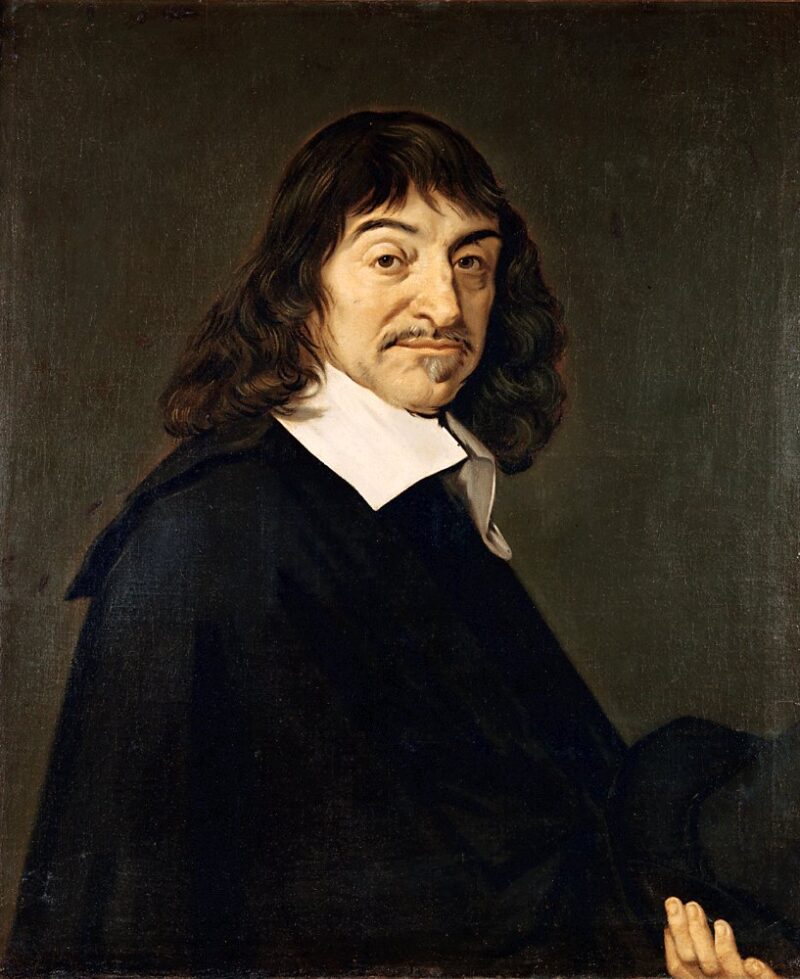
It would be impossible to have a list of famous philosophers without including René Descartes since he is often heralded as being the Father of Modern Philosophy. He was a natural scientist and a mathematician, and mathematics was an important component in his method of inquiry. Although many have heard the phrase “I think, therefore I am,” few realize that it is actually credited to Descartes.
Learn more: René Descartes at Stanford Encyclopedia of Philosophy
17. Karl Popper (1902–1994)
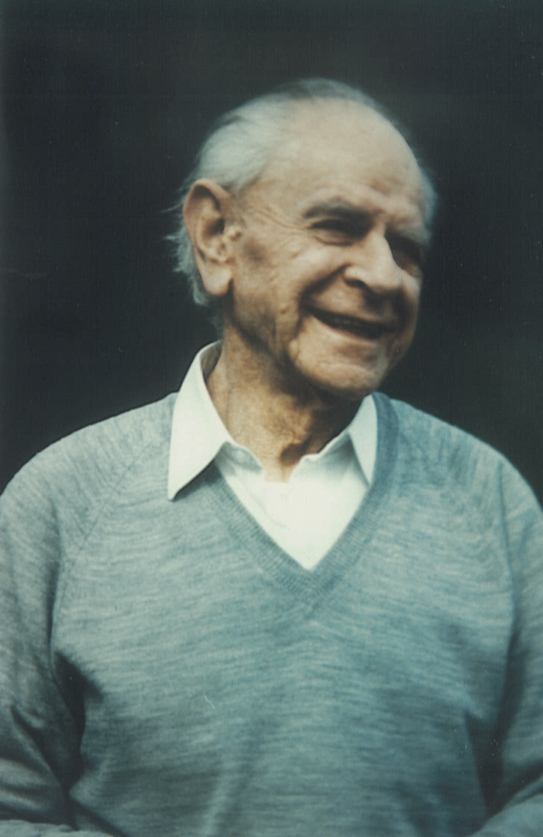
Karl Popper is considered one of the most influential philosophers of science during the 20th century. He favored empirical falsification over classical inductivist views on the scientific method. His theory of falsifiability (the capacity to prove a theory or hypothesis incorrect) was meant to be the solution to the problems of induction and demarcation of science and non-science. His political opinions attempted to reconcile many different democratic ideologies including libertarianism and socialism.
Learn more: Karl Popper at Stanford Encyclopedia of Philosophy
18. Cornel West (b. 1953)
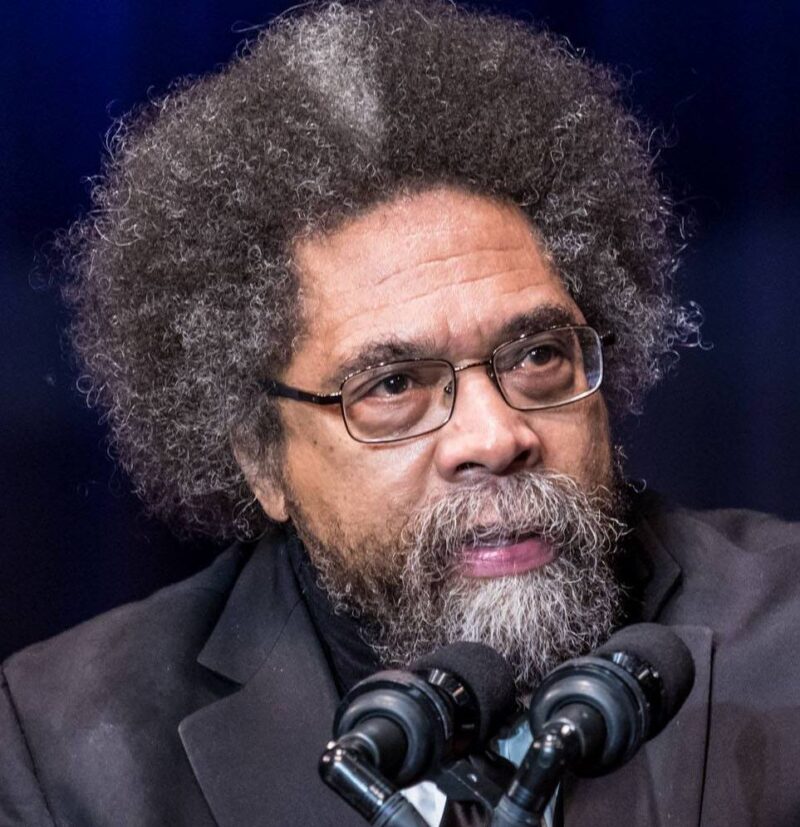
American Cornel West wears many hats including philosopher, political activist, theologist, and social critic. West, who considers himself to be a non-Marxist socialist, graduated from Harvard University after three years and holds a PhD in philosophy from Princeton. While he has authored many books, he is perhaps best known for his books Race Matters and Democracy Matters. West is currently a professor of Philosophy and Christian Practice at Union Theological Seminary and professor emeritus at Princeton University.
Learn more: Cornel West at Britannica
19. Angela Davis (b. 1944)
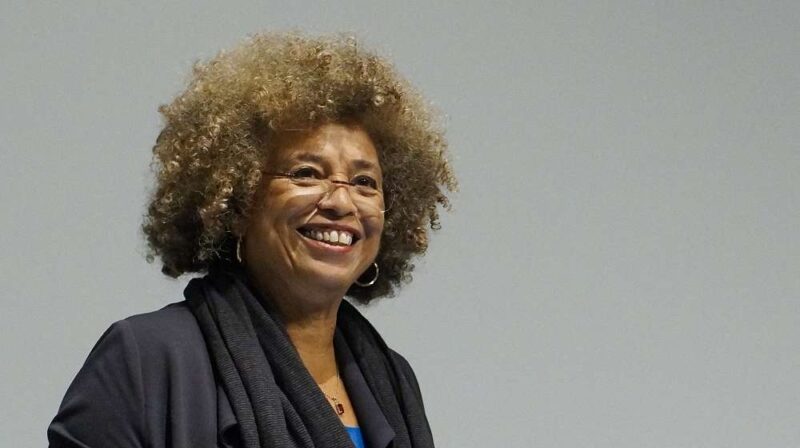
Angela Davis identifies as a revolutionary Marxist and feminist political activist. She is also a philosopher, author, and educator who has been an active member in both the Communist and Black Panther parties. During the 1980s, she was the Communist Party’s candidate for vice president during two separate campaigns. She has also advocated for the abolition of the prison system.
Learn more: Angela Davis at Britannica
20. Kong Qiu/Confucius (551–479 BCE)
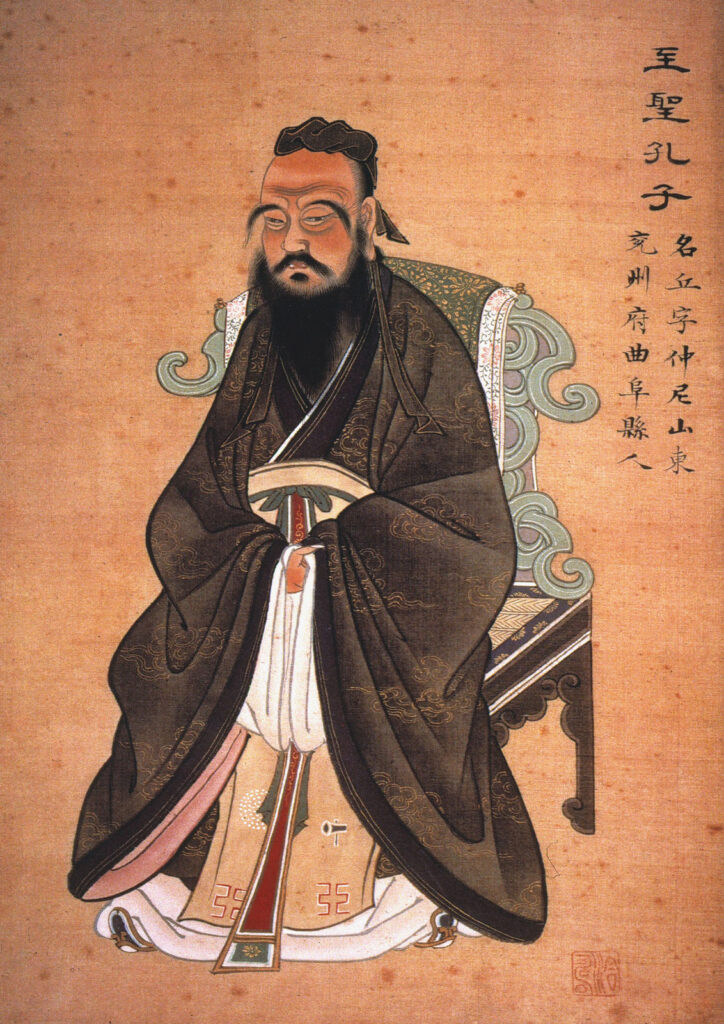
Kong Qiu, or Confucius as he was nicknamed by Jesuit missionaries, promoted the notion of making education broadly accessible. He is known for helping to establish the art of teaching as a vocation. Confucianism is a way of life that centers around the idea of the cultivation of morality on an individual basis.
Learn more: Confucius at Stanford Encyclopedia of Philosophy
Also check out these 20+ Famous Astronauts Your Students Should Know.
Plus, get all the latest teaching tips and ideas when you subscribe to our free newsletters!

